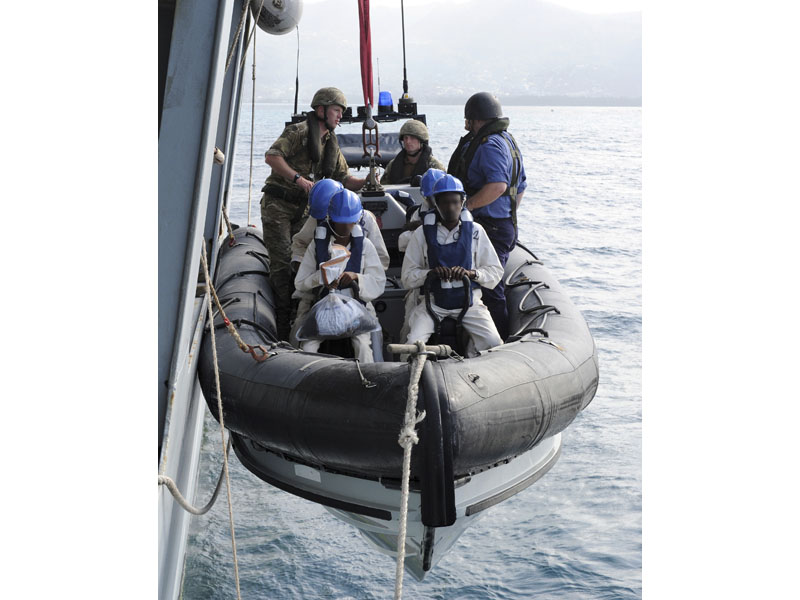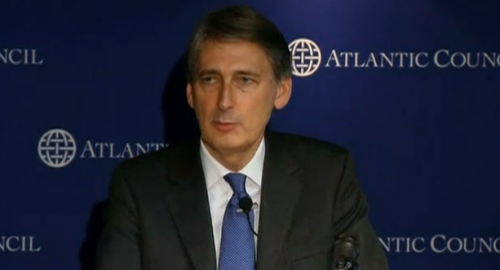Disappearance of the Arctic Sea: not an act of piracy but so what?
(BRUSSELS2) Piracy? Not Piracy? The case of the Arctic Sea, this boat flying the Maltese flag, belonging to a Finnish company, run by Russians, and disappeared from radar screens in early August between the Channel and the Atlantic, never tires of surprising.
At first it seemed surprising, even a joke. As I related in my briefs of july. While all European countries are engaged in the fight against piracy a few thousand km from the European coast, now pirates have hit a ship a few miles from our coast? A boat attacked in the open Baltic Sea by pirates pretending to be police. Amazing.
Then the boat "released" without any intervention - the pirates leaving the edge - without asking for their rest. Even more amazing. The boat continues on its way... then disappears between Calais (during the last contact), the rail of Ouessant and the Atlantic (it would never have arrived in Portuguese waters, affirms the coastguards of the country). Read the briefs of august.
Astonishment is no longer appropriate and the mystery deepens and we enter a business that oscillates between an Arsène Lupine of the seas, a new Bermuda triangle version Russian Mafia or a dark question of couple between the owners.
The hypotheses are going well. Lloyds specialists point out that several "sister" ships of the Arctic Sea have capsized in the past. The Spanish press, taken up by the Russian press, sees him in San Sebastian. Quickly denied by the port authorities. The Financial Times Deutschland, taken over by Itar Tass and the Daily Telegraph, sees him in Cape Verde. Apparently there isn't. Or is no longer there. Russia gets involved and decides to put its navy on alert. The International Maritime Bureau, a specialist in piracy, has some doubts, preferring to bet on a settlement of scores between owners. Hypothesis taken up very officially by the European Commission, this Friday.
The European Commission gets involved. Even if it does not really have any competence on the subject (maritime piracy), it does at least have in matters of maritime security (or even maritime security), and the Commission wishes to be present on this subject which is starting to get media coverage. His spokesperson denies, on Friday, officially (in a question visibly "telephoned" (1)), the disappearance of the Arctic Sea between the Channel and the Atlantic as not being able to be attributed to an act of piracy.
« You have to be very careful” first specifies Martin Selmayr, spokesman for the Commission, to immediately give some details - there would have been two attacks - and an almost categorical denial - it is not an act of piracy or banditry. "The services of the European Commission have become aware of what appears to be the disappearance of a vessel flying the EU flag. Radio signals have reportedly been received from this vessel which WAS ATTACKED twice off the Swedish coast and then from the Portuguese coast.
And to add: According to available information, these reported attacks bear no relation to traditional acts of piracy or attack at sea for theft. Coordination between the Member States concerned is ongoing. No additional comments from the European Commission so as not to prevent ongoing operations. Indeed, around thirty experts from different countries (United Kingdom, Portugal, France, Sweden, Finland and Malta) are in contact and are trying to unravel what looks like either a settling of scores between shipowners, or an attempt recovery of illegal cargo on board the vessel. And Russian and Portuguese military ships would head for the area.
Many questions can be asked: Was the boat really attacked? By who ? What did the boat contain? What happened to the crew? Who are the real owners? Did it capsize? If not where did he go to take refuge? Can he really go far with the cargo of fuel he has? etc. In short, classic questions when faced with such a case. But we can also wonder about two or three facts:
1° The lack of intervention by the Swedish navy and police. Why the Swedish navy (or the Swedish police) did not verify that the boat "attacked" in Swedish territorial waters, had indeed been "released". It was not only a necessity but an obligation. In the middle of the Indian Ocean or in the Gulf of Aden, this check has become routine for European forces (EU or NATO). But here, in European territorial waters, close to the coast, where there is no shortage of means of reconnaissance and intervention and can intervene quickly, nothing. Not even a helicopter flight, physical contact, a visit team to check that everything is fine on board, that there are no problems, that the pirates have left the ship. " We will investigate when the boat arrives in Algiers ” assure the Swedish police force. A little light for an act of piracy. Especially since Sweden holds the presidency of the EU. That its maritime and police forces are not minimal. And that she has just joined the European Union's anti-piracy operation. Even if piracy in European waters seems to be an outdated phenomenon, the shipjacking could well be reborn like carjacking or homejacking...
3° The slow European reaction. For a fact taking place in European waters, it is notable. The European reaction - still very cautious - was more than slow. Is it the syndrome of the month of August which explains this absence (it is also true that most of the media took a good week to react, the first articles appearing in the European press around August 10 when it was already headlines in Finland and Sweden and in specialized circles since the attack by the "pirates" at the end of July). However, the "disappearance" of the Arctic Sea reveals a disturbing fact, the ship tracking system, which has been greatly improved in recent years, does not seem perfect (neither for maritime safety - shipwreck - nor for maritime security - terrorism, etc.). What would happen if it was a tanker venting...? In itself, the "declaration" of the European Commission (even if officially it is only an answer to a journalistic question) marks a turning point, because it politicizes the affair; it is the first political institution to react officially and above all to show the tip of its nose in the face of Moscow, which monopolizes attention.
4° Conversely, the extent of the Russian reaction. Decided at the highest level, announced with great fanfare by Medvedev, if on the European side we dawdle, on the Russian side we do not skimp, it is a real deployment of force that the Russian navy is beginning. Four ships of the Russian Black Sea Fleet which pass not far from there are officially asked to go and see. Two nuclear submarines are even put on alert (2). All of this officially at the request of the shipowner (whose behavior is more than bizarre, preferring to turn to Moscow than to the other capitals (3)). It is true that the crew is Russian. But we had never seen Russia take such a close interest in the fate of its citizens. It is true that this primarily serves the new Russian strategy: to be present everywhere on the seas, to be able to intervene wherever Russian interests are threatened (just when a bill is being submitted to the Duma to facilitate the intervention of Russian troops abroad).
It is also true that intervening in the middle of the Atlantic, therefore in the middle of the "NATO" zone, is not to displease Moscow. This allows the passage to demonstrate that, decidedly, NATO is not very effective, since even in an area as closely monitored as the English Channel, the Ouessant rail and the Atlantic coasts, we lose contact. Which allows to erase a little more, the delicate reminder of the anniversary date of the intervention in Georgia. In fact, if it were not to end in tragedy, the mysterious disappearance of the Arctic Sea is a "blissful" finding for the new Russian geomilitary strategy, making it possible to justify a further step in its policy of intervention by the world (after Georgia, the Indian Ocean, now the Atlantic) and justifying the need to revise the European security system (which definitely cannot function without Russia, Moscow seems to be saying, "Arctic sea" proof in support ).
Between Moscow and Brussels (EU or NATO), who will put the first hand on the boat "Arctic Sea" therefore today has an importance that goes beyond the simple rescue of a sinking ship and crew.
(24h update): the ship was located 400 nautical miles from the island of Sao Vicente (therefore outside the territorial waters and exclusive economic zone of Cape Verde and in international waters), would be the Arctic Sea according to the Cape Verde Ministry of Defense relayed by Ria Novosti.
(Nicolas Gros-Verheyde)
- The "telephone" question is the question posed by a journalist to a spokesperson - sometimes on a complex subject or totally out of step with the other questions - and where the spokesperson has a very detailed, well-argued answer (already written). Basically, the spokesperson suggests to a journalist that if he asks this question, he will get an interesting answer. Everyone is a winner: the journalist asks "the right question". The spokesperson may make an answer that he could not make "spontaneously" - because the subject is not entirely within his competence or because the institution does not want to put itself too much forward. In short, the great art of diplomatic journalism. A technique quite popular in the European press room (I witnessed it... and the actor, must I confess!).
- The spokesperson for the Russian Navy neither denies nor confirms “These missions, as well as the location of the submarines cannot be the subject of any comment”, explains Kouznetsov, according to the Ria Novosti agency.
- Other countries have a more natural jurisdiction: Malta is the flag State, Finland is the State of the headquarters of the company owning the ship, the police of which has not officially received any complaint. The neighboring countries (Sweden, Portugal, France, etc.) on the passage of the ship could also receive such a request for assistance from the shipowner.


Comments closed.